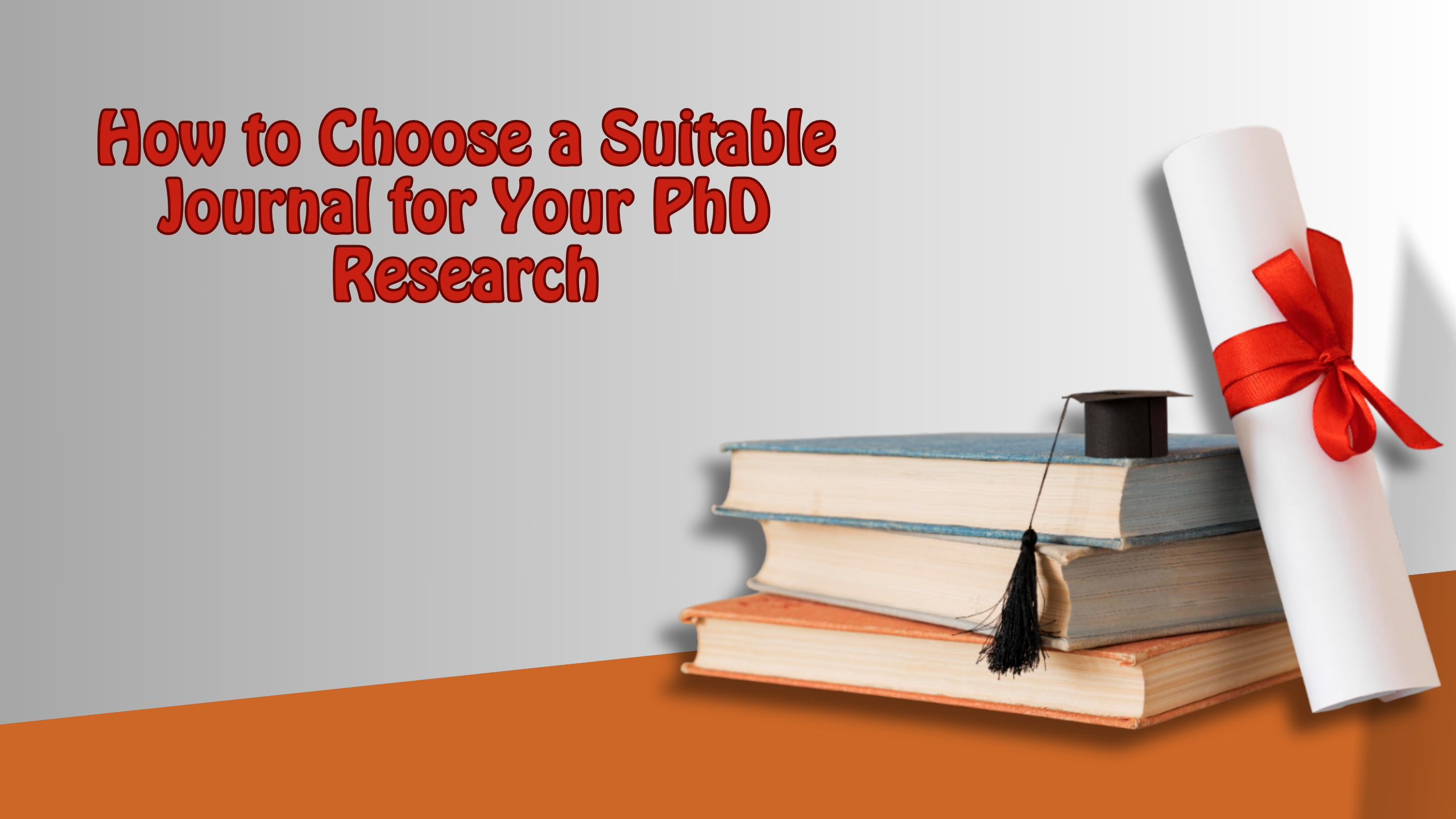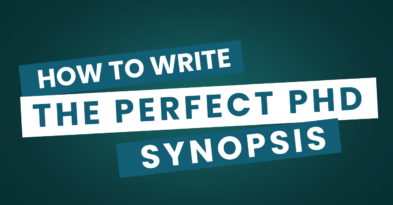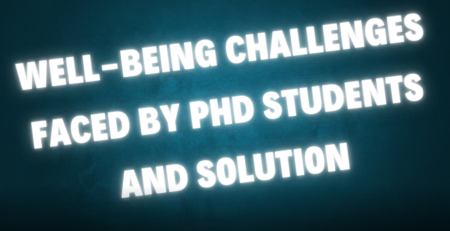27May

Choosing the right Journal for Your PhD Research is one of the most important decisions you’ll make as a scholar. It determines not only how your work is disseminated but also how it’s recognized by the academic community. The right Journal for Your PhD Research increases your visibility, enhances your academic reputation, and opens doors to future opportunities. But with thousands of journals out there, how do you choose the right one?
In this guide, we’ll walk you through a step-by-step process for choosing a suitable journal for your PhD research. Whether you’re in the early stages of your doctorate or preparing your final thesis paper, this blog will give you the clarity and confidence to make the right publishing choice.

Before we dive into the process, let’s understand why journal selection is crucial:
The first step in journal selection is aligning your research topic with the journal’s focus area. Ask yourself:
Tip: Use databases like Scopus, Web of Science, and Google Scholar to find journals that regularly publish research similar to yours.
Every journal has a unique mission. Visit the journal’s homepage and read the “Aims and Scope” section carefully. This will tell you:
Avoid submitting to a journal if your research doesn’t align exactly with their scope. Misaligned submissions are often rejected without review.
Reputation matters. Academic credibility often hinges on where your work is published. Prioritize journals that are:
Why indexing matters: Journals listed in Scopus or Web of Science have established editorial standards and reach a global audience. This boosts both the discoverability and citation potential of your work.
While the impact factor isn’t everything, it does serve as a general indicator of a journal’s influence in its field. Look for:
These metrics reflect how often articles in the journal are cited, how selective the journal is, and its general standing in the academic world.
A journal’s editorial board offers insight into its academic quality. Look for:
Also, review past publications and authors. If the journal consistently publishes high-quality research, it’s a good sign of credibility.
Publication delays can affect your graduation or job applications. Check:
Some journals are notorious for taking 12–18 months from submission to publication, while others publish within 3–6 months.
Predatory journals exploit researchers by charging high fees without providing quality peer review. Warning signs include:
Use platforms like Beall’s List, Think. Check. Submit., or consult your supervisor to verify legitimacy.
You’ll also need to decide between:
Open Access Journals
Subscription-Based Journals
Make this choice based on your budget, your institution’s policy, and your target audience.
A suitable journal will clearly outline its publishing ethics, including:
A journal that prioritizes ethics ensures that your research is handled responsibly and transparently.
Several free and paid tools can help you find journals based on your manuscript title or abstract:
These tools use keyword and topic-matching algorithms to recommend suitable journals in seconds.
Never underestimate the value of expert guidance. Your supervisor, co-authors, or senior scholars can:
They’ve likely published in many journals and can offer valuable insights into what editors look for.
Before submitting your paper, carefully read the “Instructions for Authors.” This includes:
Ignoring these can result in automatic rejection, regardless of your research quality.
Choosing the right Journal for Your PhD Research is not just a formality—it’s a strategic decision that impacts your academic career. Invest the time to thoroughly research your options, match your paper’s scope with the Journal for Your PhD Research mission, and ensure credibility through indexing and ethical standards.
By following these steps, you’ll significantly improve your chances of acceptance and set yourself on the path to a strong academic future.
Kenfra Research understands the challenges faced by PhD scholars and offers tailored solutions to support your academic goals. From topic selection to advanced plagiarism checking.
66% of engineers' posts lying vacant: A situation where 66% of engineering positions are vacant would be a significant concern for... read more
Protests erupt as Delhi University raises PhD programme fees by 1,100%- Kenfra University of Delhi: Delhi University, officially known as the University... read more

Writing a Perfect PhD Synopsis is a crucial step in your doctoral journey. It serves as a roadmap for... read more

Embarking on a PhD journey is a commendable pursuit, filled with intellectual growth and academic achievements. However, the path... read more
Allahabad University (AU) has announced that it will start offering PhD programs in three foreign languages – French, Russian, and... read more

Publishing a research paper in a reputed journal is a significant milestone for PhD scholars. However, selecting the right... read more
CCSU Meerut commences Pre Ph.D. coursework tomorrow in physical education for 2023 Chaudhary Charan Singh University (CCSU): Chaudhary Charan Singh University (CCSU),... read more

Writing an abstract is a very important part of academic writing. If you are a student, researcher, or scholar, you’ll... read more

As we progress through 2025, the field of cybersecurity remains as crucial as ever. With the continuous evolution of... read more
95% UG seats filled in govt engineering colleges of Indore; It's great to hear that the government engineering colleges in Indore... read more
WhatsApp us
Leave a Reply